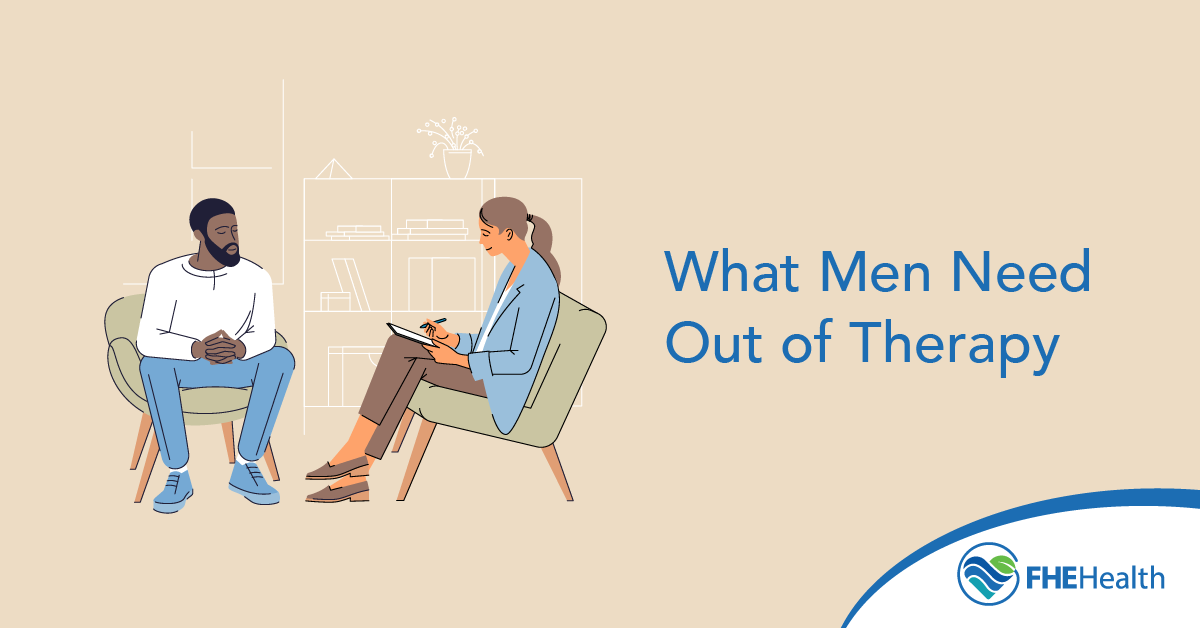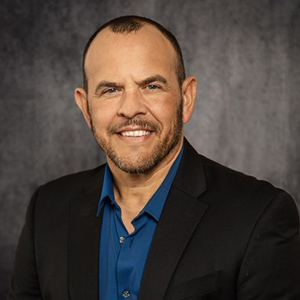

Men face unique mental health challenges that therapy can address. In celebration of Men’s Health Month, we decided to explore these issues with the help of Patrick Fitzgibbons, MBA, MS, MA. Fitzgibbons is a counselor and the program lead for Shatterproof FHE Health, our specialized treatment program for first responders. He’s also a retired police commander, speaker, and coach. His award-winning podcast, Criminal Justice Evolution, discusses topics that affect first responders.
What do men need out of therapy? The question is a bit misleading. Not all men are alike, afterall. Still, in a broader sense, men as a demographic often face particular mental health obstacles. What are these challenges, and how can therapy address them? Catch Fitzgibbons’ insights in the below Q&A.
Common Reasons Men Avoid Therapy
Q: What are some common reasons men avoid therapy?
A: I believe some of the biggest reasons that men avoid therapy are fear and ego. No one likes the unknown, but often when men are struggling, they fear they’ll be viewed as weak if they reach out for help.
Most men are taught early in life not to show weakness or vulnerability. I know I learned this at a young age, and it was reinforced in the military and law enforcement. Starting at a very young age, men learn to suppress emotions. They also learn that they should be able to handle and move past any challenge they face. This early messaging from family, friends, and other influences is false, feeds an unhealthy ego, and can be dangerous.
This ties into what I previously said about weakness and vulnerability. Men need to realize that it’s ok to show vulnerability. Vulnerability is a sign of strength, not weakness.
What Men Talk About in Therapy
Q: As a mental health counselor working with a first responder and predominantly male population, can you speak to some of the common issues that men want to talk about in therapy?
A: From my experience working with a predominantly male population (mostly first responders), men typically want to talk about trauma on the job. But men also want to talk about their relationships (both personal and professional), their perceived weakness for reaching out, and their fears of the future.
What Therapy Can Do for Men
Q: What can therapy do for men facing mental health struggles?
A: Therapy can teach men to become more resilient and mentally stronger, as well as secure in their sense of self.
Q: What can therapy do for men’s work/family/romantic relationships?
A: Therapy can teach men to listen more and look at different perspectives other than their own. By helping men feel more secure in themselves, therapy can also improve men’s communication with others.
Q: What can therapy do for emotional suppression/anger issues?
A: Therapy can help with these greatly. It can teach men coping mechanisms for anger such as grounding techniques (breath work, for example). Therapy can also equip men with tools for processing their emotions like journaling and meditation.
Q: What can therapy do for men’s self-confidence?
A: When a person, (not just men), feels mentally balanced and safe and secure, this naturally brings more confidence and, in turn, a better quality of life.
Alternatives to Talking About Feelings
Q: What if you don’t want to talk about your feelings with a therapist? Are there still ways that therapy (talk or other) can be beneficial?
A: Sure. Fortunately, we live in a time where we have resources at our fingertips. There are plenty of support groups available for men who don’t necessarily want to see a therapist. The application MentalHappy (mentalhappy.com) is a great resource for finding a support group.
Another good alternative to individual talk therapy might be a life coach; and, in terms of self-help, meditation, breath exercises, and gratitude practices are excellent sources of health and wellness for men.
I would recommend professional therapy for people who have been struggling for a long time with mental health challenges, addiction, or both.
What Therapies Work Better for Men
Q: From your experience, do certain types of therapy work better for men, or does it depend on the person?
A: It really depends on the person and what they are struggling with. There are different treatment modalities that therapists usually gravitate towards, such as Dialectical Behavior Therapy, Cognitive Behavioral Therapy, or Acceptance Commitment Therapy. A thorough initial assessment and ongoing assessments are key to determining appropriate treatment(s) that will meet the client’s needs.
Overcoming Male Stigmas About Seeing a Therapist
Q: How do you get over male stigmas about seeing a therapist?
A: I think one of the biggest ways men can get over the stigma of seeing a therapist is by talking to another male who has been through therapy. The stigma of seeking mental health support is not going to be reduced by therapists, counselors, and the behavioral health profession alone. The stigma is going to be mitigated by men talking to men about the benefits of seeking treatment.
Anxious or depressed and need someone to talk to? Our counselors are available 24/7. Contact us today.






